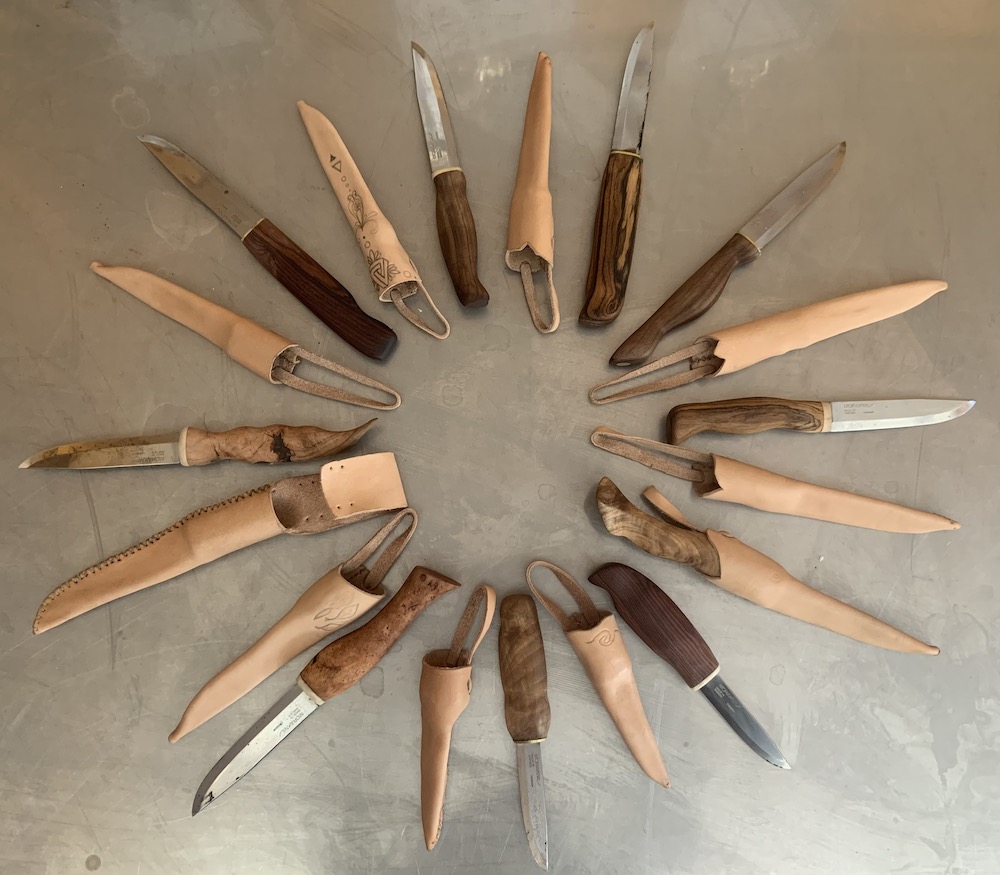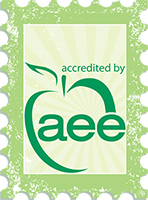2021 Legends of the Rio Grande Semester BLOG #3
As I write you now, my friend, I sit cross-legged on our campus porch. Lamplight bathes my page in warmth and shadow as my pencil works across the page. Close your eyes, dear reader, and be here with me. This is a moment for us to connect.
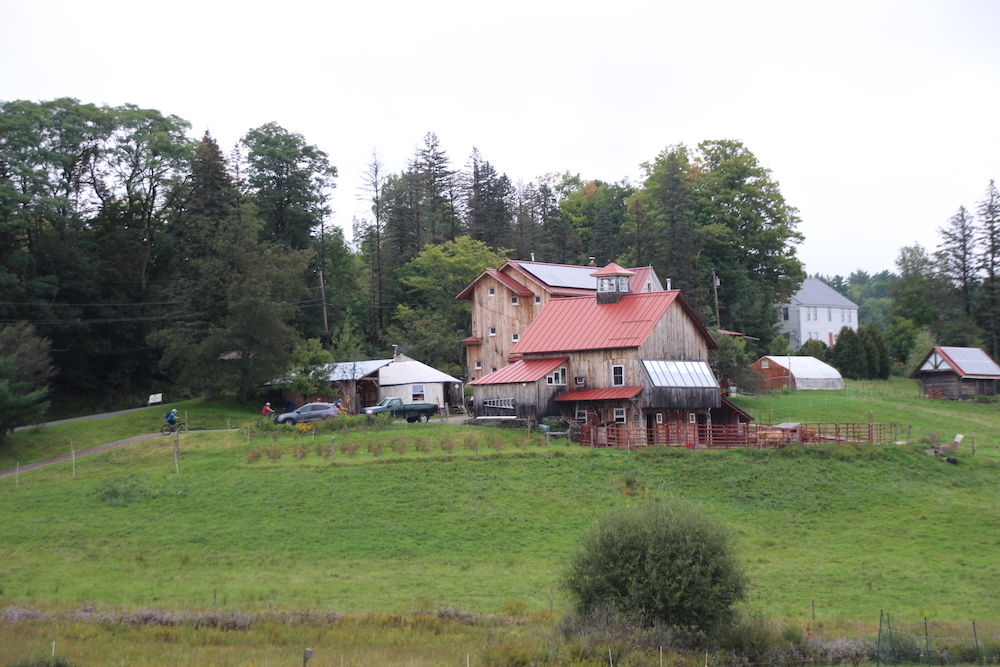
Home. Kroka Basecamp
We returned to Kroka basecamp last Sunday, as the full moon called us home from the rivers. We slept and we dreamed, replenishing our bodies for this next block of Building Community. Our familiar basecamp schedule fell into place: we awoke early, did yoga and headed out for morning chores. I went to split wood with Zef as other members of our semester family tended to the chickens, the farm and camp, cooked breakfast or dug holes in the rich, black soil.
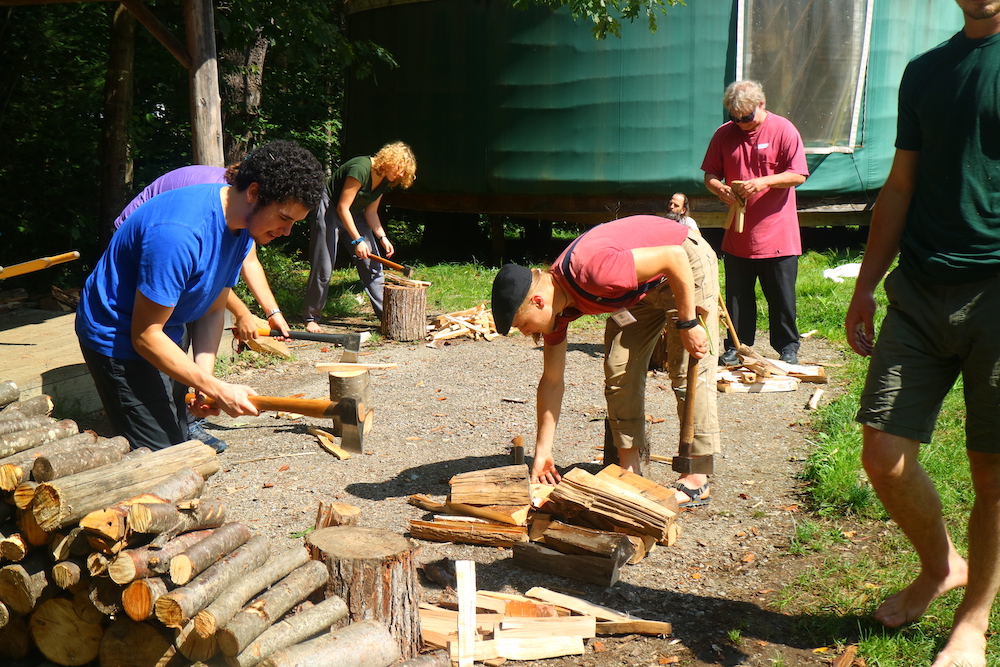
Zzyn, Jaz, Patrick, Leland, Bill & Samuel split wood for chores (photo from arrival day, but the work job is a perennial staple of morning chores)
On Monday afternoon, the crew and I visited Chase’s Mill just down the road, where we helped the miller, Bob, clear out invasive saplings around the stream. He was a tall, wide-shouldered plant of a man, perfectly crafted to morph into the old mill building. We saw waterpower in action: a living breathing relationship between human and water. I could tell he loved this work, this land. His passion was as clear as the stream below.
I keep finding more ways I want to live my life.
On Tuesday, we observed a very different sort of interaction with water. We sprang out of the van to blue skies and shallow water along the bank of the Connecticut River. We all swam across the great river, occasionally brushing the bottom, to the Bellows Falls water treatment plant on the other side. We were greeted by Josh, a smiling plant worker. He guided us through the organ-like processes of the sewage plant, highlighting the ways in which water is separated from solid waste, treated and released into the river.
This begs the question: Why would we mix waste with water in the first place?
Over the course of our hydrology studies with Misha, we closely examined human’s relationship with water and how it manifests. We read a book called Control of Nature, by John McPhee, about the manipulation of the Mississippi River, and wrote an essay on the issues this manipulation presented as well as a plan to fix them. Water is a precious limited resource, as we have seen.
So, I offer a question to you, dear reader: What is your relationship to water, as a water being on a water planet?
Before we returned to campus, we walked up to the river to see ancient hieroglyphs on slabs of rock under an arching bridge carved thousands of years ago by the indigenous people of this area. They were half-covered by large rocks spilled into the river by colonizers during the industrial revolution. A great waterfall once kissed the land here. A sacred land.
We fell into studying with Liz and Ezra, and learned about the indigenous groups that inhabited the land along the border of the United States and Mexico. In discussion, we tackled the themes of understanding and familiarity, of chaos and order, of fear and hate, to get a better perspective of what those people went through in the days not so long ago. Just a hair’s length away, in fact. (In our Deep Time walk, we traveled 4.6 km to correspond to the 4.6 billions years since the beginning of time to now, with the post-Industrial Revolution era occupying one hair’s thickness in distance.)
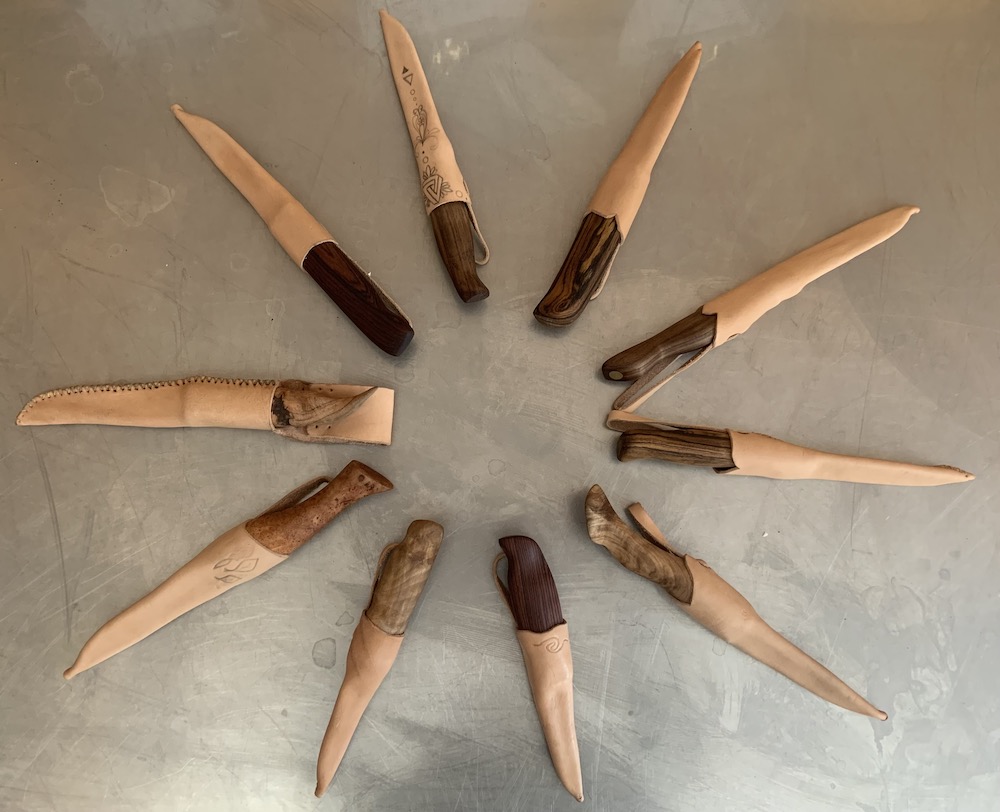
The knives (most of them). Handmade by each student and soon to be gifted to another student
Our classes this week have led us to re-examine our connection to the lifeblood of water, to space and time, to privilege, to chaos, and finally our own two hands. We all made knives this week with Samuel. We carved handles of chestnut, cherry, maple or rosewood, and our knives will be gifts to each other.
Every struggle we face as a group is making us stronger. Every challenge brings us closer together. I do believe I love these people.
Until next time,
-Your Scribe, Avelea

